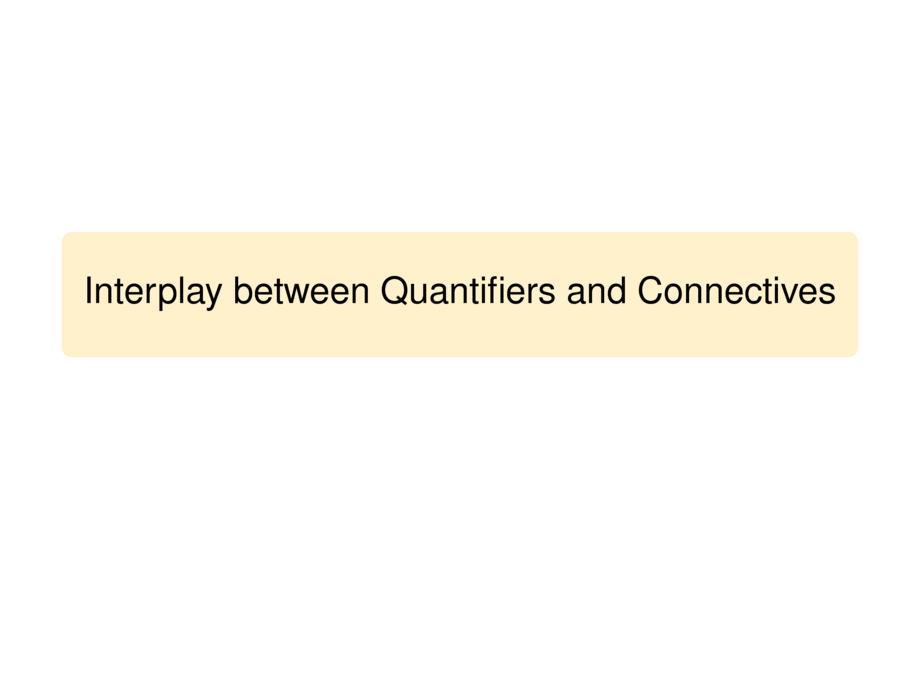



































































































162/183
\begin{frame}{Alternative Translations}
Another example:
\begin{talign}
\sentence{Jan does not know a logician.}
\end{talign}
\pause
Again two possibilities:
%
\begin{talign}
\mpause[1]{\parbox{0.55\textwidth}{\sentence{There is not anybody Jan knows}\\\sentence{who is a logician.}} & :\;\;}
\mpause{ \formula{\lognot{\existsst{x}{(\logand{\binpred{K}{\const{j}}{x}}{\unpred{L}{x}})}}} }
\\
\mpause{\sentence{Everybody Jan knows is not a logician.} & ;\;\;}
\mpause{ \formula{\forallst{x}{(\logimp{\binpred{K}{\const{j}}{x}}{\lognot{\unpred{L}{x}}})}} }
\end{talign}
\updatepause
Using the equivalence
\formula{
$ \lognot{\existsst{x}{}}
\logequiv
\forallst{x}{\lognot{}}$},
% Op grond van de equivalentie $\niet \eris x \,\equiv\, \alle x \niet $ kun je
we can transform
\begin{center}
$\formula{\lognot{\existsst{x}{(\logand{\binpred{K}{\const{j}}{x}}{\unpred{L}{x}})}}}$
% $\niet \eris x (Kjx \en Lx) $
\mbox{ } into \mbox{ }
$\formula{\forallst{x}{\,\lognot{(\logand{\binpred{K}{\const{j}}{x}}{\unpred{L}{x}})}}}$.
% $\alle x \niet (Kjx \en Lx)$,
\end{center}\pause{}
From propositional logic we know that
\begin{center}
$\formula{\lognot{(\logand{\binpred{K}{\const{j}}{x}}
{\unpred{L}{x}})}}
\logequiv
\formula{\logimp{\binpred{K}{\const{j}}{x}}{\lognot{\unpred{L}{x}}}}$
\end{center}\pause{}
% $ \niet (Kjx \en Lx) \:\equiv \: Kjx \dan \niet Lx$
\medskip
Combining these two transformations we obtain in fact:
\begin{equation*}
\formula{\lognot{\existsst{x}{(\logimp{\binpred{K}{\const{j}}{x}}
{\unpred{L}{x})}}}}
\logequiv
\formula{\forallst{x}{(\logimp{\binpred{K}{\const{j}}{x}}{\lognot{\unpred{L}{x}}})}}
%$$\niet \eris x (Kjx \en Lx) \;\equiv\;\alle x (Kjx \en \niet Lx)$$
\end{equation*}
\end{frame}
\theme{Interplay between Quantifiers and Connectives}

